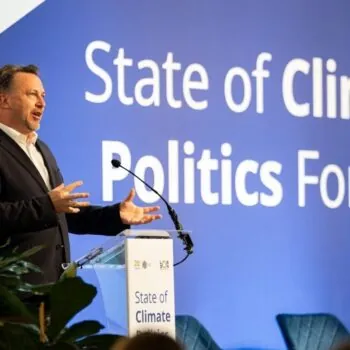Whilst the UNFCCC forms a central part of the climate regime there are many other moving parts that play into the process. Here is E3G’s flashcard guide to the blockbuster climate diplomacy moments that are framing the run up to Warsaw.
The US championing climate risk
At his second inauguration speech, President Obama focused on climate change, dedicating more time to the subject than any other issue. The focus was not on defending the science, but on the impacts – impacts on American jobs and prosperity, impacts on future American generations and impacts on American freedom. This speech, soon after Superstorm Sandy marked a new beginning for US engagement in climate diplomacy. It was subsequently followed by President Obama deploying his executive power to set deadlines for the Environmental Protection Agency to cap emissions, essentially ruling out new coal-fired power plants, which represent a third of US GHG emissions.
HFCs US-China announcement
After a series of bilaterals, the US and China agreed that the phase down of HFCs would be held under the Montreal Protocol not the UNFCCC. This collaboration spurred a similar agreement amongst the G20 nations and signals a more constructive relationship between US and China, and critically momentum towards a resolution on HFCs.
Global Aviation outcome
Last month, the international aviation body (International Civil Aviation Organisation – ICAO) agreed to develop a market based mechanism to curb emissions by 2016, to implement by 2020. In doing so, it put a dampener on the EU’s plans to curb aviation emissions through their Emissions Trading Scheme (ETS). Although Europe will have to temper its regional scheme, ICAO will develop a universal approach to curbing emissions from aviation.
EU-China solar tariff tensions
Ongoing discussions between the EU and China over solar tariffs imposed by the EU commission could dampen broader political relations. Despite objections from many member states and the solar industries, the proposed tariffs posed stringent limits to Chinese solar imports with damaging implications on diplomacy and widespread deployment of solar. Although a temporary ceasefire has been reached, the diplomatic damage may take longer to recover.
China focus on air quality and coal capping
Recent concerns from the Chinese populous about air quality in their cities has seen an uptick in Chinese investment in tackling climate change. Recently, in addition to many other policies in their 12th Five Year Plan, China has released a plan to cap coal consumptions to below 65% of its total primary energy use by 2017. New industrial projects in 3 significant manufacturing provinces in China will be banned from building their own captive (plants not on the grid supplying factories) power plants. Instead, they will be encouraged to replace coal with power purchased from the grid.
EU post-2020 package
Paralysis in European decision making on climate and energy is resulting in significant risks of drifting towards a 40% GHG target for the post-2020 package. Lack of a strong progressive coalition (previously seen between Germany, France, the UK and the Scandinavians), coupled with some damaging interventions by Germany on the CO2 in cars directive has left a vacuum through which opposition can prevail. Given Europe still remains as the global benchmark on ambition, this package will set the scene for the 2015 agreement.
Australia’s election
Tony Abbott’s election as Australia’s new prime minister will cause significant backtracking on Australian domestic climate policy. Despite ‘in principal support’ for the second commitment period of the Kyoto Protocol his election is likely to have detrimental impacts on Australia’s domestic ambition and diplomatic approach in the run up to 2015.
IPCC
The release of the first working group (WG1) put to bed the claims of climate deniers and opened the door to a debate on climate risk that has vast potential to raise ambition. All governments have signed off WG1 and Warsaw will be a milestone in how the science informs the politics.



